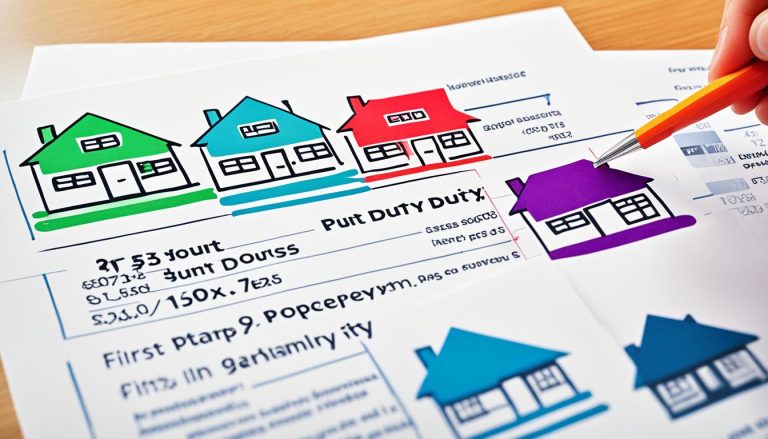The debate on the direction of house prices in the United Kingdom is a captivating one, filled with both optimism and concern. As the average price of a property in the UK rose by 1.3% – or £3,900 – to £291,029 in January, a fourth consecutive month of increases, some may be tempted to dismiss the fears of an impending property market crash. However, a closer look reveals a more complex and precarious situation.
Is the UK housing market teetering on the brink of a historic crash? Experts have warned that the market is facing such a threat, with soaring mortgage rates following 14 consecutive hikes to the Bank of England’s base rate being a significant contributing factor. Between the start of 2020 and autumn 2022, house prices across most of the UK rose steeply by about 25%, but a subsequent drop has affected millions of homeowners. The climbing interest rates have made mortgages increasingly expensive, preventing many would-be buyers from getting on to the property ladder, while the cost-of-living crisis has hit people’s spending power and forced some homeowners to sell up, further destabilising the market.
The Debate on the Direction of House Prices
The debate surrounding the future direction of the UK property market remains divided, with recent trends showcasing a mix of rising and falling house prices. While the uk house prices have seen a moderate increase in recent months, experts have sounded warnings about the market teetering on the brink of a historic crash.
Recent Trends in House Prices
House prices in the UK rose in January for the fourth consecutive month, dampening fears of an impending uk housing market forecast crash. However, this optimism is tempered by the soaring mortgage rates following 14 consecutive hikes to the Bank of England’s base rate, which experts believe could trigger a signs of a housing market crash.
Factors Affecting House Prices
The UK property market has experienced a rollercoaster ride in recent years. The steep rise in prices of around 25% between the start of 2020 and autumn 2022 has been followed by a subsequent drop that has affected millions of homeowners. Climbing interest rates have made mortgages increasingly expensive, preventing many would-be buyers from getting on the property ladder, while the cost-of-living crisis has hit people’s spending power and forced some homeowners to sell up, further factors affecting uk property prices destabilising the market.
The Looming Threat of a Crash
Despite the recent uptick in uk property market trends, experts warn that the looming threat of a crash is a real possibility. The year-on-year price drops in August and September were the “most substantial” since the 2009 financial crisis, triggering fears of a repeat occurrence and the potential for a uk housing affordability crisis.
Is the Property Market Going to Crash?
The debate surrounding the fate of the UK property market remains divided, with conflicting predictions from experts and analysts. While some leading indicators of house prices indicate a continued downward trend, the outlook is far from certain.
Predictions from Experts and Analysts
The Office for Budget Responsibility has predicted a 10% drop in house prices over the next two years, though they acknowledged that these projections are “very uncertain”. Some observers have suggested the possibility of a “soft landing”, with “small price falls” throughout the rest of the year and “little, if any, growth” in 2024. However, an expert from Zoopla has forecast a more significant decline, predicting that house prices will fall by 22% by 2026.
Factors Contributing to a Potential Crash
Several factors have contributed to the instability in the UK housing market, raising the risks of a potential crash. Soaring mortgage rates, driven by the Bank of England’s successive interest rate hikes, have made homeownership increasingly unaffordable for many. The ongoing cost-of-living crisis has also eroded buyers’ spending power, leading to a drop in demand that has further destabilised the market.

The Impact on Different Regions of the UK
The fluctuations in the UK property market have had a varied impact across different regions. In 2023, all UK nations and the nine English regions recorded house price falls, but northern locations did prove to be more resilient than those in the south.
Regional Variations in House Price Trends
While the feeling in the market is more optimistic now, the 2.5% annual house price rise should be put into context, as a 10% year-on-year increase in prices has been more typical during the past decade. Regional variations in house price trends show that northern regions have been more resilient, with less severe price drops compared to the south.
Resilience of Northern Regions
This indicates that the impact of the market changes has not been evenly distributed across the UK. The UK housing market forecast suggests that northern regions have demonstrated a greater resilience to the challenges facing the UK housing affordability crisis.

The 18-Year Property Cycle Theory
The 18-year property cycle theory, developed by British author and economic commentator Fred Harrison, suggests that the UK housing market is subject to cyclical booms and busts. Harrison has successfully predicted past property crashes, including the 2007 peak in house prices and the ensuing 2008 depression. He is now warning of another impending boom and bust on the horizon.
Understanding the Property Cycle
Harrison expects the average UK house price to rise by around 20% between now and the end of 2026, but then a big crash to take place, with any gains made wiped out entirely. He believes the driving force behind the cycle is the finite supply of land and the speculative habit of exploiting the property market for additional capital gains.
Fred Harrison’s Predictions
Harrison’s predictions are based on his theory of an 18-year property cycle, which he has identified as operating within the UK for at least 300 years. His forecasts suggest that the housing market is poised for a significant correction, with the potential for a UK real estate bubble to burst in the coming years.
The Driving Forces Behind Rising Prices
The key factors affecting UK property prices that Harrison identifies as the driving forces behind the cyclical nature of the market include the finite supply of land and the speculative tendencies of investors seeking to maximise capital gains. This suggests that the housing market may be vulnerable to a significant downturn, potentially leading to a housing market crash in 2024.

Conclusion
The debate surrounding the direction of the UK property market remains divided, with recent trends showcasing a mix of rising and falling house prices. While some experts raise concerns about an impending crash, others predict a “soft landing” with modest price declines. The impact of these market changes has varied across different regions, with northern areas proving more resilient than the south.
Factors such as soaring mortgage rates, the ongoing cost-of-living crisis, and declining buyer demand have all contributed to the instability in the market. The 18-year property cycle theory, championed by Fred Harrison, suggests that a boom-and-bust cycle is on the horizon, with prices set to rise by around 20% before a significant crash. However, the inherent complexity of the UK housing market makes it challenging to forecast the future with certainty.
Homeowners, buyers, and investors will need to closely monitor the evolving situation and seek professional advice to navigate the potential risks and opportunities. As the market continues to fluctuate, it is essential to stay informed about the latest trends in UK house prices, housing market forecasts, and the potential signs of a housing market crash or real estate bubble. By understanding the factors affecting UK property prices and market trends, as well as the housing affordability crisis, individuals can make informed decisions and mitigate the risks associated with the UK’s dynamic property landscape.
FAQ
How has the impact of the UK property market changes varied across different regions?
The impact of the fluctuations in the UK property market has varied across different regions. Northern locations have proved more resilient, with less severe price drops compared to the south, indicating that the impact has not been evenly distributed across the UK.
What are the predictions for the UK property market?
Opinions are divided on whether the UK property market is heading for a full-blown crash. While some experts predict a 10% drop in house prices over the next two years, others foresee a “soft landing” with modest price falls. However, an expert from Zoopla has predicted house prices would fall by 22% by 2026.
What is the 18-year property cycle theory?
The 18-year property cycle theory, developed by British author and economic commentator Fred Harrison, suggests that the UK housing market is subject to cyclical booms and busts. Harrison believes the driving force behind the cycle is the finite supply of land and the speculative habit of exploiting the market for additional capital gains. He expects the average UK house price to rise by around 20% between now and the end of 2026, but then a significant crash to take place.






